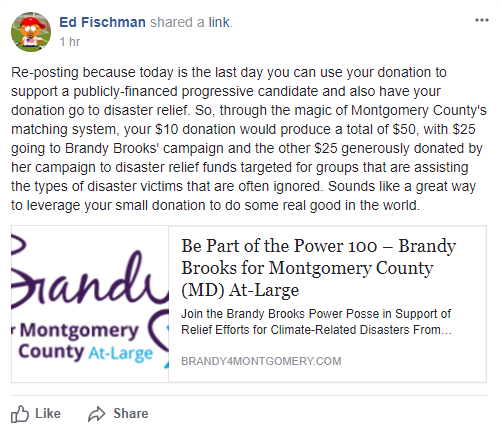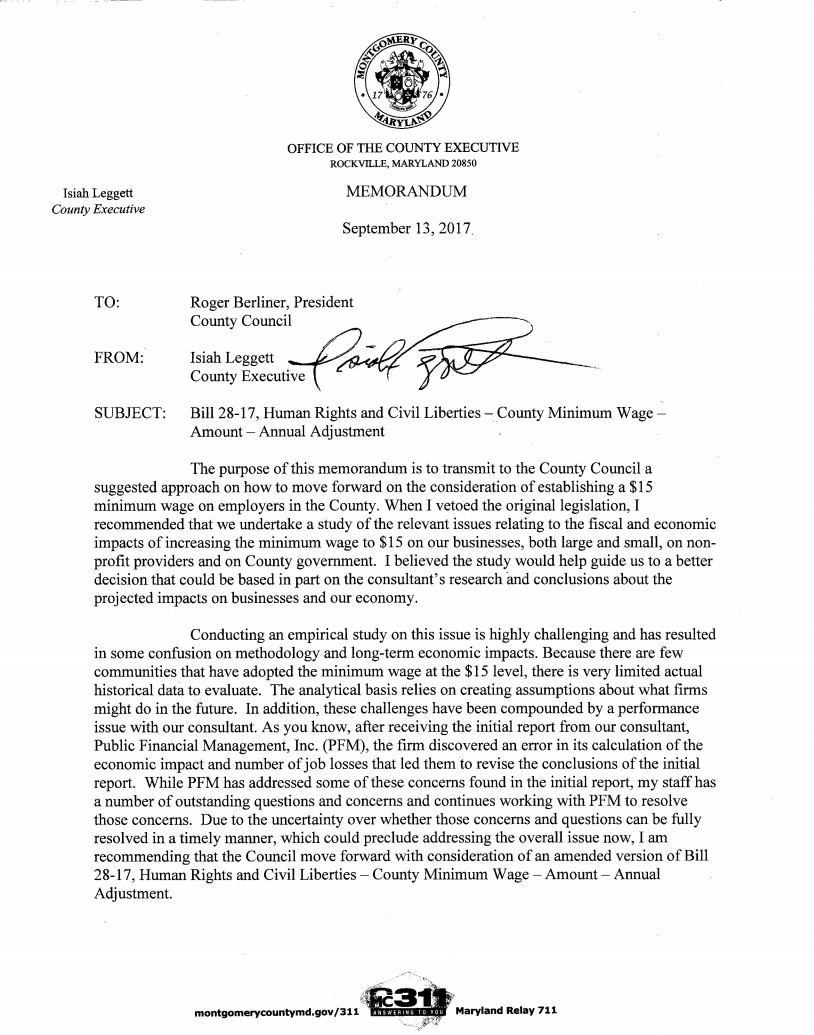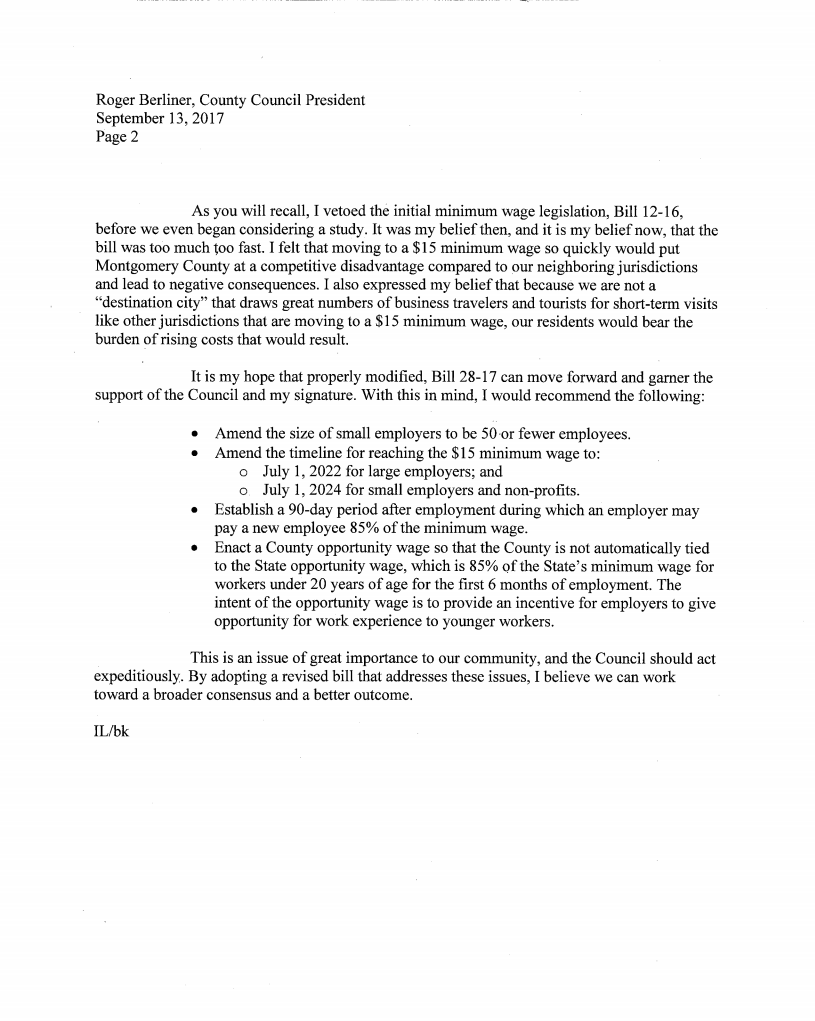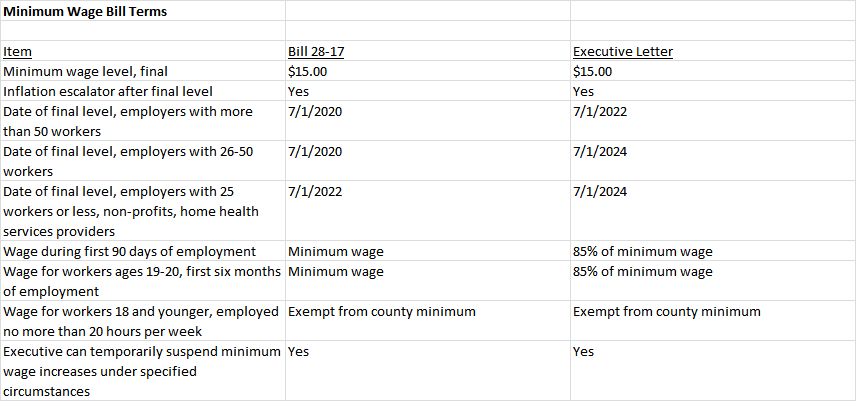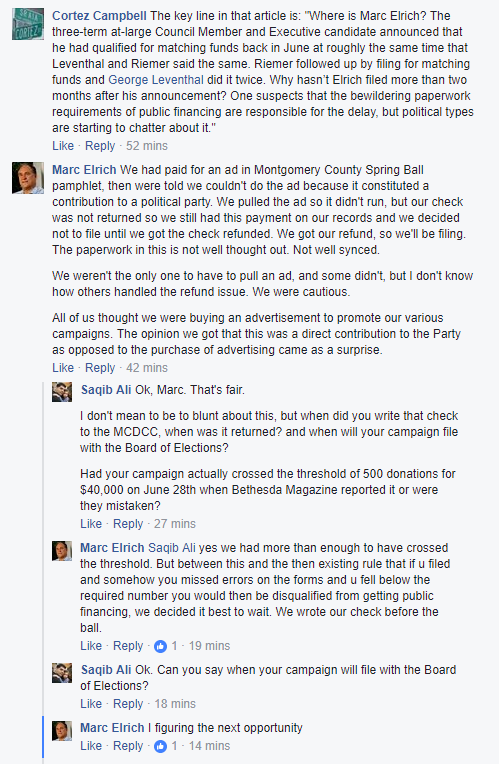Edward Fischman of Our Revolution Montgomery County responds to yesterday’s post:
Adam Pagnucco wrote a piece here in The Seventh State that starts with a legal conclusion that isn’t clear. It accuses Brandy Brooks’ campaign of breaking the law. Ms. Brooks has discussed the matter with the State Board of Elections and has obtained definitive guidance on how to achieve the charitable goals she set out to accomplish with her Power 100 promotion.
I am writing because Mr. Pagnucco’s piece curiously dragged me into the matter, because I shared her promotion in a post on social media (editor’s note: posted above). We are in a strange era where the act of sharing a post on Facebook post becomes news in itself. So be it.
After I posted in a Facebook group to share Ms. Brooks well-intended fundraising effort to facilitate charitable donation by her supporters, one councilmember helpfully raised a concern to me about it. That accomplished two things. First, it forced me to look at what I’d written and realize that I’d badly mischaracterized Ms. Brooks’ own promotion of this effort. I corrected that within an hour of the original posting — and noted that I was correcting my own error.
The other thing that this councilmember’s outreach achieved was it spurred me to find a way to connect with Ms. Brooks campaign to raise that councilmember’s concerns about whether Ms. Brooks’ page adequately explained the program in a way that would be one hundred percent kosher. By the end of the day, I had managed to make contact and share the concern. The next day — Saturday — I also sought the candidate at a public event over the weekend, to make sure she understood why I thought it was important for them to speak to the State Board of Elections to make certain the effort was conducted consistently with state financing laws and regulations.
I am impressed with Brandy Brooks’ candidacy. I have no role with the campaign, and certainly do not represent her. Mr. Pagnucco wrote it was “unclear” if I am connected with the campaign. There’s an unspoken implication that i might be. Whatever his role in writing on this site, Mr. Pagnucco has worked in journalism and should know better. He could have asked me — or asked the Brooks campaign — about whether I was connected to the campaign, and about the nature of my post. I would have told him that I did not know Brandy Brooks 2 months ago and before this and interacted with her less than an handful of times. Also, I could have pointed out to him that I had revised my Facebook pose, to correct my error in describing the Power 100 effort.
My description was a mistake, but it is no way newsworthy. I was deeply concerned when I realized what I’d mistakenly described the campaign’s proposal for the donations — but thought I’d done very little harm, as it received one “Like,” before I corrected it. Finding my error reposted at the Seventh State is…both surprising and embarrassing, but my reputation is not my aim in writing here. I do not want my error to reflect badly on Brandy Brooks’ campaign.
After the piece was published, Brandy reached out to me to tell me not to worry about any of this — and thanked for me trying to be helpful in sharing information about the opportunity to support her campaign and charities she felt worthy. She has explained to me what steps she is taking to remain compliant with Maryland’s campaign financing laws.

